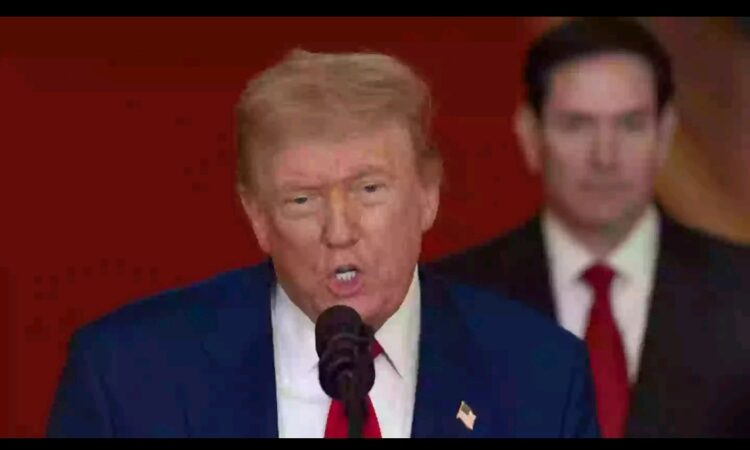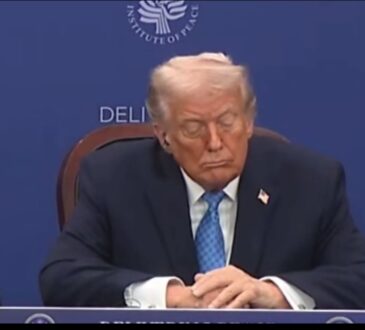
Donald Trump issued a strong message on Monday as the world waits to see how Iran will respond to a major military action by the United States. Over the weekend, the U.S. military—specifically the Air Force and Navy—launched airstrikes on three of Iran’s nuclear facilities. These sites, located in Fordow, Natanz, and Isfahan, are believed to be critical to Iran’s nuclear program. Trump described the attack as a “very successful” mission and told the American public that these key facilities were “completely and totally destroyed.”
Iran, however, has strongly condemned the strikes. Iran’s foreign minister, Seyed Abbas Araghchi, called the U.S. actions “extremely dangerous, lawless, and criminal,” and warned that there will be long-lasting consequences. The situation has made governments around the world anxious, especially because it could lead to even greater instability in the Middle East.
A major concern now is how Iran might retaliate. One of the biggest worries involves the Strait of Hormuz—a narrow but vital waterway between Iran and Oman. It’s one of the world’s most important routes for oil tankers, with about 20% of the global oil supply passing through it. If Iran decides to block or restrict access to the strait, it could send oil prices skyrocketing and disrupt energy supplies around the world.
On Monday, June 23, Trump posted a warning on his platform, Truth Social. In all capital letters, he said: “EVERYONE, KEEP OIL PRICES DOWN. I’M WATCHING! YOU’RE PLAYING RIGHT INTO THE HANDS OF THE ENEMY. DON’T DO IT!” Trump’s message seems to be aimed at oil companies, investors, and possibly even foreign countries, warning them not to use the situation to drive up oil prices.
So far, oil prices in the U.S. have gone up only slightly, with investors staying cautious and waiting to see what Iran does next. Still, the current price is the highest it’s been since late January. If prices stay at this level, it means American drivers will be paying around $3.30 per gallon for gas. That’s not extreme, but it is noticeable and affects everyday costs for people and businesses.
Financial experts say Trump’s latest actions have added more uncertainty to global markets. Earlier this year, he caused concern by announcing new tariffs, although many of those were paused. Now, the situation in the Middle East is once again making markets nervous.
Ole Hansen, an analyst at Saxo Bank, told Reuters that “all eyes are on the Strait of Hormuz” and whether Iran might try to stop oil tankers from moving through it. Even if Iran doesn’t take direct action, the threat alone could delay oil shipments and push prices higher. Some analysts believe we could see rising prices in the short term, even without a full blockade.
In a televised address to the nation, Trump explained why the strikes happened. He said the goal was to eliminate Iran’s ability to produce nuclear weapons and stop what he called a “nuclear threat” from a country he described as the world’s top supporter of terrorism. He said the military mission was a clear success and warned Iran that if they don’t choose peace, future attacks from the U.S. will be “far greater and a lot easier.”
As the world watches closely, tensions remain high, and much depends on how Iran decides to respond. For now, global oil markets, political leaders, and everyday people are all bracing for what might come next.




